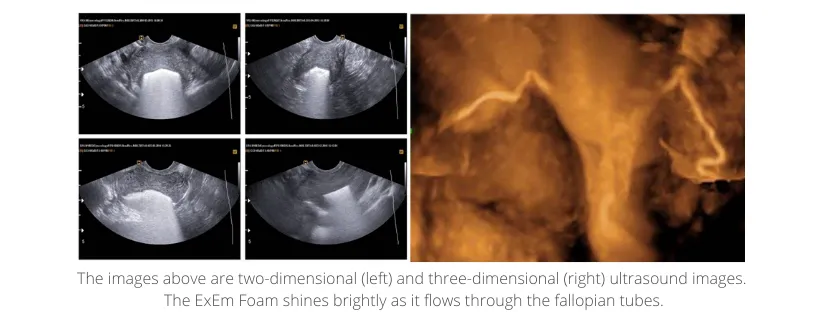What is Menstrual Cycle and How it affect my fertility?
Menstrual cycle is a duration starting on the first day of menses come until one day before your next menses come. This is to prepare your body for pregnancy. It's regularity can be a good sign your fertility. Fertility of a women depend on how well your menstrual cycle function.
On average, most women's menstrual cycle is about 28 days, but it can range from 21 days to 35 days and still consider as normal. Menstrual cycle is affected by your hormones such as LH, FSH, Oestrogen, and Progesterone. These hormones fluctuate throughout the cycle and cause your uterus and ovaries to response correctly. Menstrual cycle can be separate into three phases:
1. Follicular Phase (Days 1-14) - this last for approximately day 1-14. Day 1 is the first day of bright red bleeding. The end of this phase is marked by ovulation. The ovaries are preparing to ovulate at the same time. Pituitary gland (in our brain) releases a hormone called FSH – follicle stimulating hormone. This hormone stimulate the growth of eggs ''follicles'' in both the ovaries. Only one of these follicle becomes dominant and within it develops a single mature egg; the other follicles will be reabsorb by the body. Occasionally more than one follicle reaches maturity, this can lead to twins or more. The maturing follicle produces the hormone oestrogen, which increases over the follicular phase and peaks in the day or two before the ovulation. It helps thicken lining of the uterus (endometrium) and more enriched with blood. About day 13-14, surges in LH and FSH cause the egg to be released from the follicle. The surge in LH also causes a brief surge in testosterone, which increases sex drive, right at the most fertile time of the cycle.
2. Ovulatory Phase (Day 14)
The release of the mature egg happens on about day 14 as a result of a surge in LH and FSH. After release, the egg enters the fallopian tube where fertilization may take place, if sperm are present. If the egg is not fertilized, it dies after about 24 hours. Once the egg is released, the follicle become the corpus luteum.
3. Luteal Phase (Days 14-28)
After the release of the egg, levels of FSH and LH decrease. The corpus luteum produces progesterone. If fertilization has occurred, the corpus luteum continues to produce progesterone which prevents the endometrial lining from being shed. If fertilization has not occurred, the corpus luteum disintegrates, which causes progesterone levels to drop and signals the endometrial lining to begin shedding, this is the beginning of the next cycle.
What is menstruation?
Menstruation is the monthly shedding of the lining of your uterus. Menstruation is also known by the terms menses, menstrual period, cycle or period. The menstrual blood — which is partly blood and partly tissue from the inside of your uterus — flows from your uterus through your cervix and out of your body through your vagina.
People start menstruating at the average age of 12. However, you can begin menstruating as early as 8 years of age or as late as 16 years of age. People stop menstruating at menopause, which occurs at about the age of 51. Menopause is defined as one year without periods, and after this time you can no longer become pregnant.
How it relate to my fertility?
A woman with regular menstrual cycle are more likely and easier to get pregnant compare to another similar woman of same age but suffering from irregular menses. There are many causes of irregular menses. One can started with a regular menstrual cycle and become irregular later. Most common cause is PCOS (Polycystic Ovarian Syndrome). If a woman is trying to conceive at the same time is facing irregular menstrual cycle it is advisable to seek medical attention as soon as possible and avoid waiting too long. Fertility will only get worst with aging. Irregular cycle makes predicting ovulation impossible thus affecting fertility directly.
What are some of the symptoms of a normal menstruation?
- Breast pain
- Food cravings
- Sleeping problem
- Moodiness
- Lower back and tummy pain/cramps
- Bloating
- Acne
When do I need to see a doctor?
See a doctor immediately when,
- You haven't started menstruating by the age of 16.
- Your period stops suddenly.
- You're bleeding for more days than usual.
- You're bleeding more heavily than usual.
- You have severe pain during your period.
- You have bleeding between periods.
- You think you might be pregnant — you have had sex and your period is at least five days late.
- Your period has not returned within three months after stopping birth control pills and you know you're not pregnant.
- You have any questions or concerns about your period or possible pregnancy.
If you are facing such problems, please call us and we will help you solve your problems.
Call us now.
07 Dec 2022









